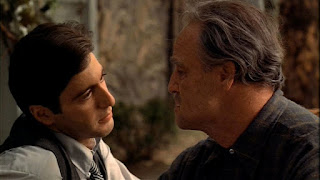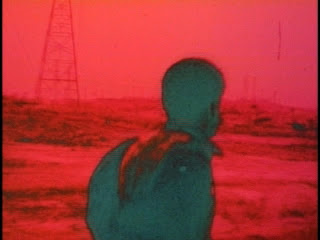Identify one image, moment, or scene that struck you most about Hearts and Minds. And, using the Cook book as your guide (please cite it specifically), discuss whether you think the film works within the cinema verite/direct cinema tradition.
Following Hearts and Minds's release in 1975, the late 1970s (and 1980s) saw a plethora of fictional films that attempted to represent the Vietnam experience from multiple perspectives. Below, I have posted clips from two of the earliest examples of this trend, Hal Ashby's 1977 Coming Home and Francis Ford Coppola's 1978 Apocalypse Now. After watching these clips, compare and contrast their representation of the war experience with that seen in Hearts and Minds.
Coming Home (Ashby, 1977)
Apocalypse Now (Coppola, 1978)
Wednesday, October 24, 2007
Wednesday, October 17, 2007
On The Texas Chainsaw Massacre
After watching the above clip from Night of the Living Dead (Romero, 1968) discuss the use of the recurring trope of the family in horror films from the late 1960s/1970s. After what you have learned about American culture and politics during this period, why do you think the family is foregrounded as the site of horror? (Feel free to incorporate a discussion of NOTLD's low-budget aesthetics and/or your pre-existing knowledge of other horror films from this period into your response.)
Wednesday, October 10, 2007
On The Godfather
 As I mentioned in my opening remarks, The Godfather is considered one of the best American films ever made (it usually trails only Citizen Kane in "best of" lists). Citing specific examples from the film, why do you think this is? Do you think it deserves such accolades? What does it have common with other films that we have seen in the class? How does it differ? And lastly, using at least one of the three course textbooks as your guide, discuss the film either in terms of director Francis Ford Coppola's career and the short-lived American Zoetrope OR the concept of "saturation booking."
As I mentioned in my opening remarks, The Godfather is considered one of the best American films ever made (it usually trails only Citizen Kane in "best of" lists). Citing specific examples from the film, why do you think this is? Do you think it deserves such accolades? What does it have common with other films that we have seen in the class? How does it differ? And lastly, using at least one of the three course textbooks as your guide, discuss the film either in terms of director Francis Ford Coppola's career and the short-lived American Zoetrope OR the concept of "saturation booking."
Thursday, October 4, 2007
On Sweet Sweetback's Baadasssss Song

"All the films about black people up to now have been told through the eyes of the of the Anglo-Saxon majority - in their rhythms and speech and pace. In my film, the black audience finally gets a chance to see some of their own fantasies acted out...rising out of the mud and kicking ass." -Melvin Van Peebles
Discuss the specific ways in which Van Peebles creates different "rhythms, speech, and pace" in Sweet Sweetback. Is he effective in creating an alternative to the traditional Hollywood film experience? Compare and contrast this film with one other that we have seen in class. How do you see this film fitting into David Cook's discussion of the blaxploitation subgenre of the 1970s (please make specific mention of the reading - pgs. 259-266)?
Discuss the specific ways in which Van Peebles creates different "rhythms, speech, and pace" in Sweet Sweetback. Is he effective in creating an alternative to the traditional Hollywood film experience? Compare and contrast this film with one other that we have seen in class. How do you see this film fitting into David Cook's discussion of the blaxploitation subgenre of the 1970s (please make specific mention of the reading - pgs. 259-266)?
Subscribe to:
Posts (Atom)